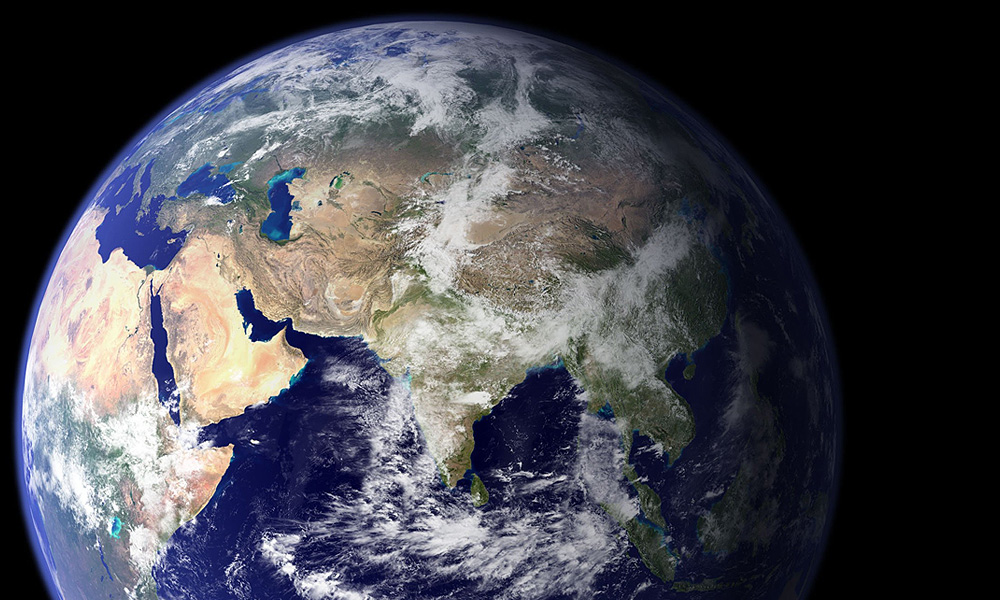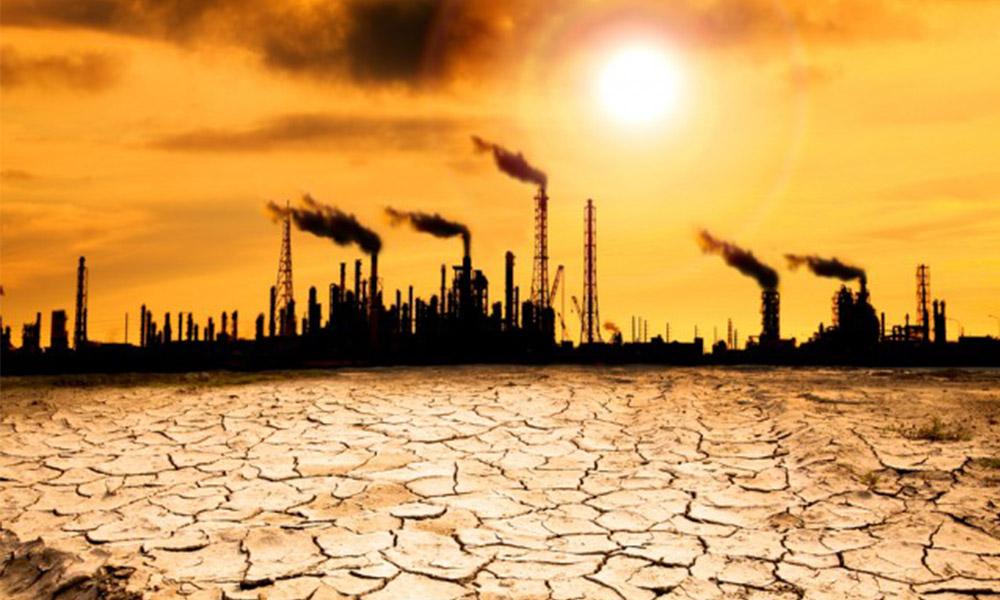
History is besieged with instances of the demise of complex human societies, alongside a host of theories hypothesising great and catastrophic collapses of civilisations on far larger scales.
That you and I still exist today is an indication that thus far, we, and our ancestors, have been beneficiaries of mixed quantities of luck, skill, intelligence, and technological development – amongst the other factors which contribute to our continuing existence as a species on Earth.
Yet within the storyline of the long-term, macrocosmic survival of our species, individual subsets of human civilisation have not been quite so fortunate.
Societies as geographically dispersed and culturally varied as the Angkor, Hittites, Mayans, Mycenaeans, and Norsemen rose to both prominence and dominance, and were then either wiped out completely or saw their numbers dwindle drastically – all within a geological instant, for reasons as varied as but not limited to ecological and environmental trauma, resource exhaustion and famine, or warfare.
A century or two from now, an updated list of defunct societies may very well incorporate some which still exist today. As history unfortunately shows, extinction (or the threat of extinction) is almost an inevitability – and not just for humans, but for every species that has ever existed.
What is less clear is precisely what the sources of future civilisational collapses will be. Despite such opacity, however, several potential threats stand out as being distinctly plausible in the contemporary era.
Is climate change the ultimate harbinger of destruction and the crippling of human progress, or will it be beaten to the punch by nuclear and biological warfare, an impact event with a near-Earth object, or a rampant artificial intelligence army?

The scientific consensus over climate change and its projected impacts, combined with our knowledge of the historical impacts of climate-related events on the planet and its inhabitants over the past 450 million years, indicate that it is this particular threat which requires significant present-day attention.
Importantly, we still have the ability to counteract climate change with strong and persistent action over the long term – provided we act quickly enough.
Figuring out just what needs to be done requires us to look at the prime cause of the issue: a dangerously high concentration of atmospheric carbon dioxide.
If there is one thing we can do to truncate the possibility of climate change driving future waves of extinction, it is putting an end to the emission of greenhouse gases into the Earth’s atmosphere. Doing so involves engaging in a deep and significant process of decarbonisation.
The Malthusian catastrophe
I recently re-acquainted myself with Thomas Malthus’ Essay on the Principle of Population, for the first time since I was introduced to the topic of population growth as a high-school student.
And for the first time, I approached this text with a strong degree of concern and interest in the issue of climate change and the scientific grounding underlying it. In a thought experiment, I tried to coalesce the two.
Malthus’ preoccupation was with the issue of starvation, and the idea that our planet would not have the physical capacity to be able to sufficiently feed a growing global population. Admittedly, he lived in a world characterised by famine, and such concerns would naturally have been placed at the forefront of his mind.

Malthus would not have been able to foresee with accuracy the key technological developments which allowed humankind to prove him wrong in the centuries since: starting with machination, and the use of fertilisers and chemicals which augmented the efficiency of agricultural produce.
More recently, progress in the sustainability of agricultural practices, and scientific advancements which have raised the resilience of crops and contributed to the proliferation of genetically-modified foods, have allowed us to cope with the rapid increase in the global population which followed the end of World War Two.
Through scientific and technological advancement, the Malthusian catastrophe was thoroughly debunked.
A critical juncture
We stand at a similar juncture today that Malthus did in 1798, with climate change. The problem of excessive carbon emissions is the result of human civilisation’s footprint on our planet.
The more developed we get, as individual nations and as a global whole, the greater our consumption of energy, food, goods, and services. We have learned to want and obtain more, and more, and more still. The increase in the absolute number of us has only multiplied the aggregate burden we pose on the planet.
It is no shock that atmospheric concentrations of carbon dioxide have grown, and reached historical heights, in tandem with the global population – especially when modern progress has been powered predominantly by carbon-intensive resources and processes.
It is only recently, with our growing knowledge of climate change and the dangers it poses, as well as through scientific and technological breakthroughs in clean energy, that efforts are being made to disentangle the relationship between the two.

Just as scientific and technological developments ensured a dismissal of Malthus’ original theory, such progress has the potential to dismiss contemporary concerns over our aggregate toll on the planet, which at present is rendering climate change a catastrophic inevitability.
A recent United Nations report suggests we need to seriously decarbonise by 2030 if we are to stand any chance of limiting the damage climate change will cause.
This is precisely why we need to act quickly in harnessing and incorporating the latest advancements in low-carbon and high-efficiency technology – particularly if we seek to continue to enjoy the relatively high – and still growing – standards of living we have come to expect in modern society.
We must move beyond coal and oil, to renewable energy; from petrol-powered vehicles, to electric vehicles and public transportation; from red meat to lab-grown alternatives and vegetarianism.
Much like agricultural innovations have allowed us to feed a vastly larger global population than was present in Malthus’ time, clean, low-carbon energy, transport, and food will allow us to check some of the worst effects of climate change – the sort of effects that would otherwise cause the collapse of subsets of the human population across the world.
Perhaps the biggest obstacles we face today in realising the necessary shifts to ensure the long-term survival of the human species on Earth come in the form of powerful, status-quo interests.

Companies which have profited greatly from carbon-intensive practices and processes themselves have no serious interest in seeing a shift away from the ‘traditional’.
Civil society’s role
The role of civil society in ensuring we seriously tackle the issue climate change is thus more important than ever. Without the men and women on the streets demanding that our governments take strong action on emitters and polluters, change will come too slowly to prevent eventual societal collapse.
This is true not just in Malaysia but in every country across the world. And we have every right to make these demands of those in power; public servants exist primarily to serve the interests of the public, particularly in democracies, and not just the interests of the large and powerful.

If we demand strong climate action, and show an unflinching willingness to vote in line with these demands, our elected politicians will have little choice but to ensure that the appropriate policies follow.
If we call for the pricing of carbon, as a tool to deal with the carbon externality and force polluters to face the full costs of their contributions to climate change, a democratic government will listen. Civil society, as a single, cohesive entity, can wield enormous power.
We need to take matters into our own hands and fight for what is best for human civilisation and our planet in the long run; without us, we cannot expect that emitters will selflessly forego short-term profitability, or that governments will forsake some present-day economic growth for long-term aggregate gain.
An article published on Malaysiakini last week by my colleague Lim Chee Han called for greater societal involvement in public policy: this is particularly pertinent in the realm of climate change.
Modern media allows us, ordinary citizens, the ability to share our voices, thoughts, and ideas in a manner that was unimaginable decades ago, and we need to take advantage of this state of affairs by getting involved in the policymaking process.
We have already allowed big industry to dictate the way the world works, and to profit enormously from their own designs, for far, far too long.
Where has that led us, if not to a position of deepening economic inequality and impending ecological and environmental disaster?
The time has come for the status quo to end, and for us to embrace progress, and embrace sustainability. It is time for us, the people, to take back our planet, and play our part in putting off the next wave of danger facing human civilisation.
Without action on our part, the future of our planet will very likely be bleak, filled with strife, turmoil, and eventually, extinction.
DARSHAN JOSHI holds a Bachelor’s degree in Economics from the University of New South Wales, and a Master’s degree in Public Policy from the University of Chicago. While he maintains an interest in a wide range of topics that fall under the purview of public policy, his passion lies in the analyses of energy and environmental issues. He views climate change as one of the most significant issues to face contemporary society, and strongly believes that the public sector has a critical role to play in the process of decarbonisation. He also firmly believes that comprehensive and transparent data is a crucial component of the necessary advancement of policymaking. - Mkini



No comments:
Post a Comment
Note: Only a member of this blog may post a comment.